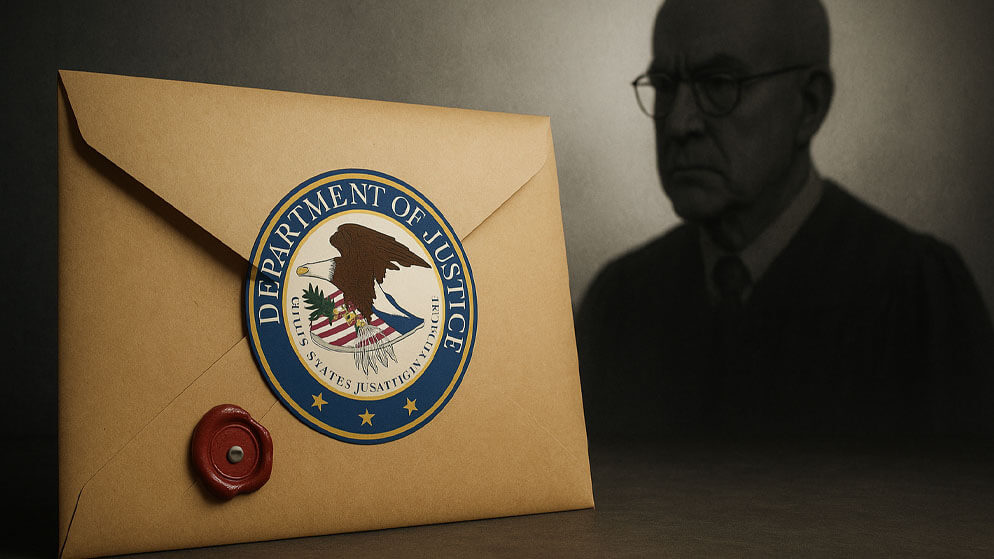The Justice Department has taken steps to challenge a federal judge's authority over the deportation of Venezuelan gang suspects to El Salvador. In a recent development, DOJ attorney Drew Ensign appealed to a federal appeals court to put an end to contempt proceedings initiated by U.S. District Judge James Boasberg, arguing that the judge's actions encroach upon the president’s authority to conduct foreign policy.
The dispute stems from a series of events that unfolded last month when Judge Boasberg, overseeing a case related to President Donald Trump's use of the Alien Enemies Act, issued orders that grounded planes carrying the deportees. Nevertheless, two flights managed to continue to their destination, while a third departed under standard immigration laws, not under the act in question. The central issue raised by the DOJ centers on the ambiguity of Boasberg's orders and whether they pertain to the physical or legal removal of deportees from U.S. territory.
Ensign emphasized in his brief to the Circuit Court of Appeals that the district court's order for criminal contempt could lead to an unnecessary constitutional conflict. The Justice Department maintains its stance that no crime was committed during the deportations due to the unclear nature of the judge's instructions, which has led to ongoing interpretation disputes.
The DOJ's request to the appeals court follows actions taken by Boasberg, who has continued to pursue the case even after the Supreme Court removed his jurisdiction. He has indicated probable cause to hold someone within the government in contempt and has sought ways to "purge" the contempt, such as providing a platform for the deportees to contest their removal.
This legal confrontation has attracted the attention of the American Civil Liberties Union (ACLU), representing the Venezuelan deportees, who argue that the appeals court's intervention is premature since formal contempt proceedings have not started. On the other hand, Attorney General Pam Bondi has criticized Boasberg's ongoing involvement in Trump administration-related cases, suggesting a conflict of interest and a need for judicial reassignment to ensure fairness.
As the D.C. appeals court temporarily pauses the case to review the government's challenge, the broader implications of this legal tangle include potential impacts on the separation of powers and the executive's ability to enforce immigration policies. It also raises questions about judicial impartiality and the role of the courts in overseeing and potentially counteracting executive actions.





